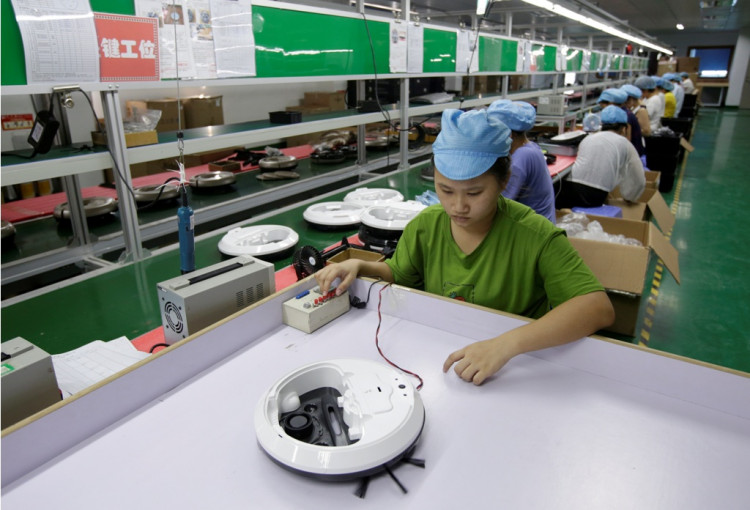China's manufacturing activity in September expanded and exceeded the expectations of most analysts. A private survey said the Caixin/Markit factory Purchasing Managers' Index (PMI) reached 51.4 in September.
According to CNBC, analysts were expecting the data to hit around 50.2 for September. The previous month posted 50.4. While the private survey's data was higher, the official PMI, also released on Monday, still exceeded expectations at 49.8. Analysts forecasted the data to be around 49.5.
Global Head of Country Risk at Fitch Solutions, Cedric Chehab, said that the latest numbers could be an indication of China's economy going through a slowdown, especially with the manufacturing sector suffering from several headwinds such as the China-U.S. trade war.
It is worth noting that PMI readings going beyond 50 indicate growth, while anything below the said figure signifies a slowdown or contraction.
Despite the official figures going below 50, analysts noted that the data is still well beyond the expected numbers, as well as the official tally for August that stood at 49.5.
Caixin Global noted that the Caixin survey suggested continuous activity in the manufacturing industry despite trade disputes and restrictions from the U.S. government. Director of Macroeconomic Analysis at CEBM Group, Zhong Zhengsheng, said growth in demand for manufacturing was driven primarily by domestic activity.
Furthermore, the private survey's readings were the highest yet since August 2018, and new orders increased at the fastest pace yet since March last year. Companies have also been rallying to support the increasing demand for orders.
While official readings and Caixin's PMI showed different results, it should be noted that the Caixin/Markit survey focused largely on light manufacturing segments, while the official data focused on the heavy manufacturing sector.
The new figures came as a surprise for many analysts and economic experts who forecasted that China will continue on a downward trend until a trade deal with the U.S. is secured.
Meanwhile, China and the United States are set to meet for trade negotiations on October 10. Vice Commerce Minister Wang Shouwen said that Beijing is hoping for a "calm and rational attitude" from both sides during the talks, Aljazeera reported.
Chinese Vice Premier Liu He will lead the Beijing team of negotiators during the talks in Washington, D.C. Economists and global governments have called for a resolution to the trade dispute to spur growth in the world's largest economies.
Both Chinese and American companies have called for a trade deal as they continue to experience difficulties while doing business with their counterparts. It remains to be seen how the trade talks will affect manufacturing activity and global stock markets.






